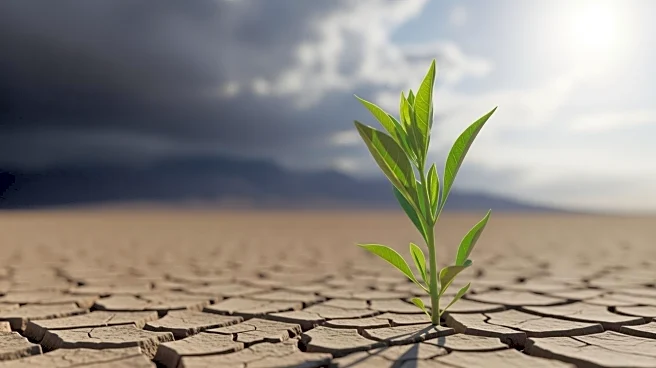What's Happening?
The United Nations weather agency has reported that carbon dioxide levels in the atmosphere reached record highs last year, significantly intensifying climate change and leading to more extreme weather events.
The World Meteorological Organization's bulletin highlights that CO2 growth rates have tripled since the 1960s, reaching levels not seen in over 800,000 years. The report attributes the increase to emissions from burning coal, oil, and gas, alongside more frequent wildfires.
Why It's Important?
The record high CO2 levels are a critical indicator of the accelerating pace of climate change, with significant implications for global weather patterns and environmental stability. The increase in greenhouse gases is likely to exacerbate extreme weather events, impacting agriculture, infrastructure, and human health. The report serves as a warning to policymakers and industries about the urgent need to reduce emissions and transition to sustainable energy sources to mitigate climate change effects.
What's Next?
The report may prompt renewed efforts by governments and international organizations to implement policies aimed at reducing carbon emissions. There could be increased investment in renewable energy and technology to capture and store carbon. The findings may also influence discussions at upcoming climate conferences, where global leaders will be urged to commit to more ambitious climate goals and actions.
Beyond the Headlines
The rising CO2 levels raise ethical questions about the responsibility of industrialized nations in contributing to climate change and their role in supporting vulnerable countries. The situation may lead to increased advocacy for climate justice and equitable solutions that address the disproportionate impact of climate change on developing nations. Additionally, there could be a focus on the long-term implications for biodiversity and ecosystem health.










